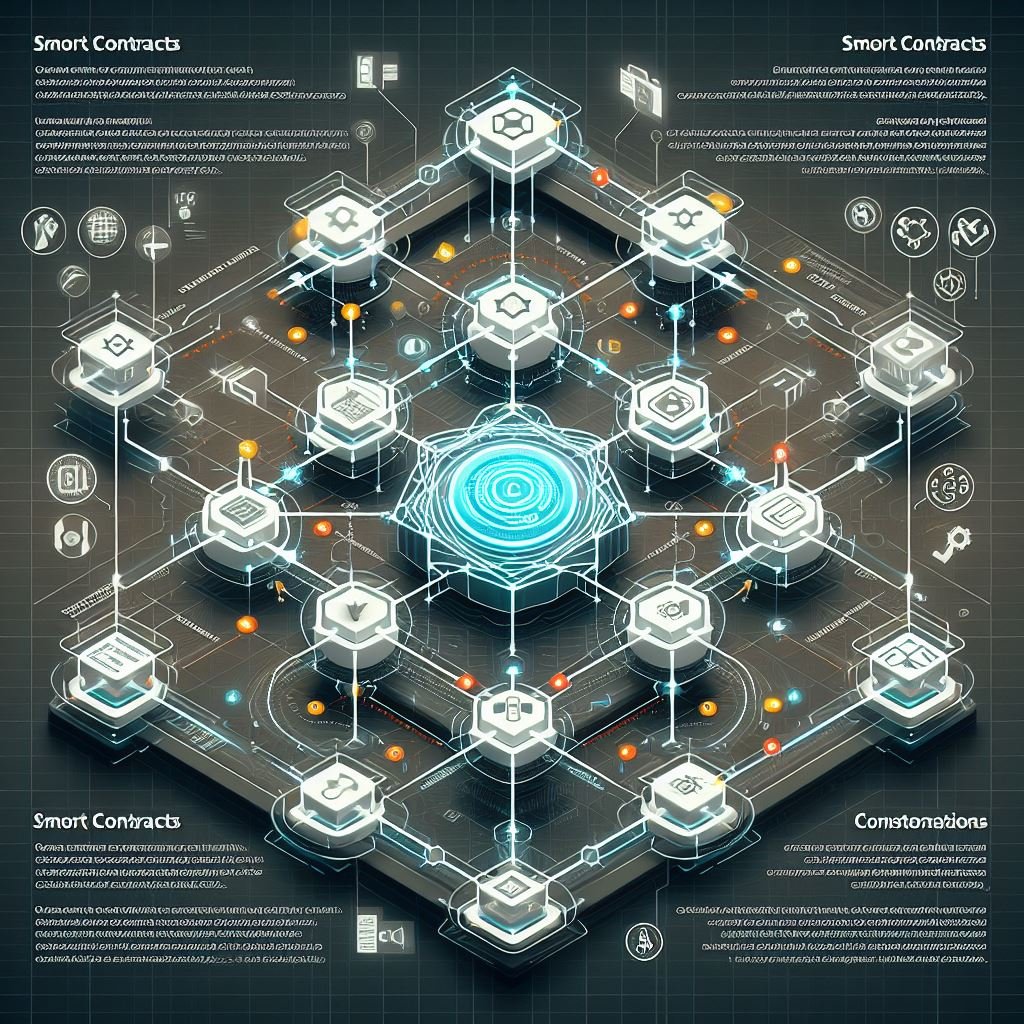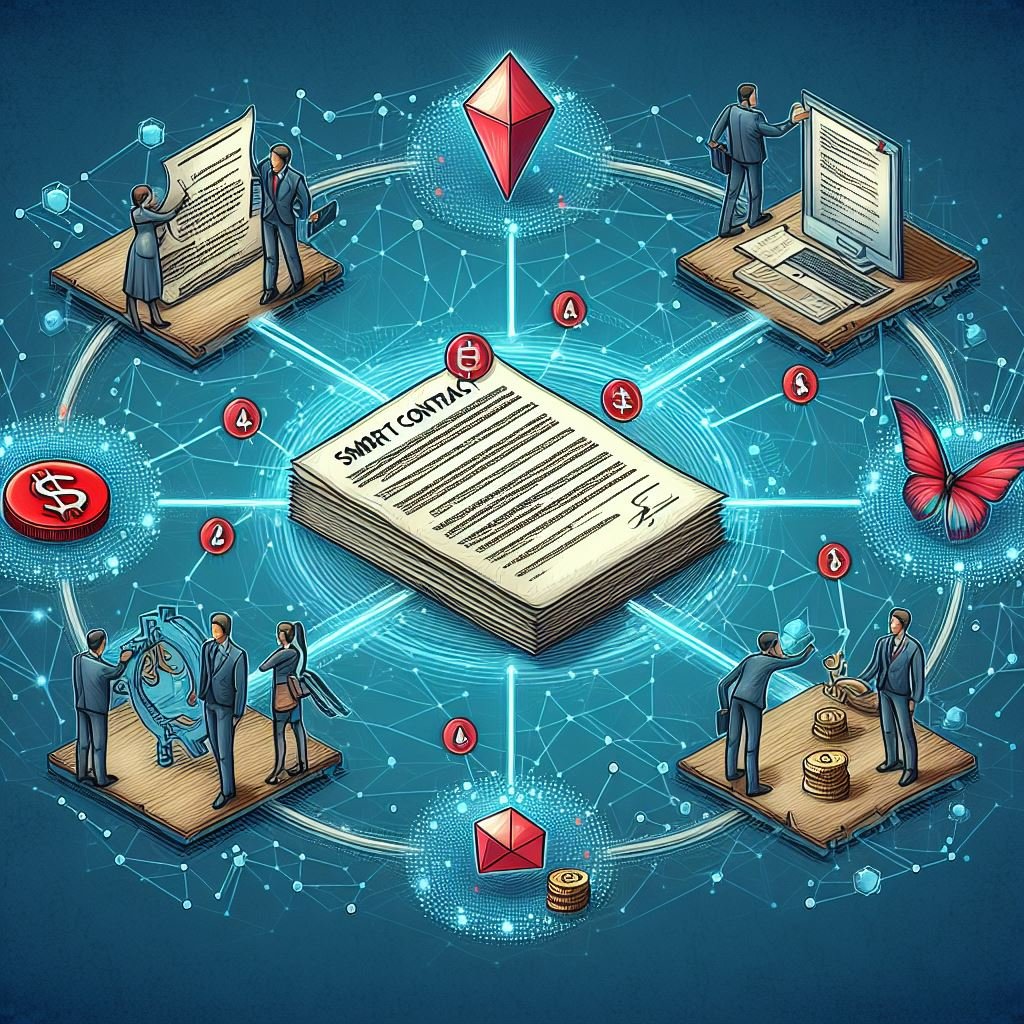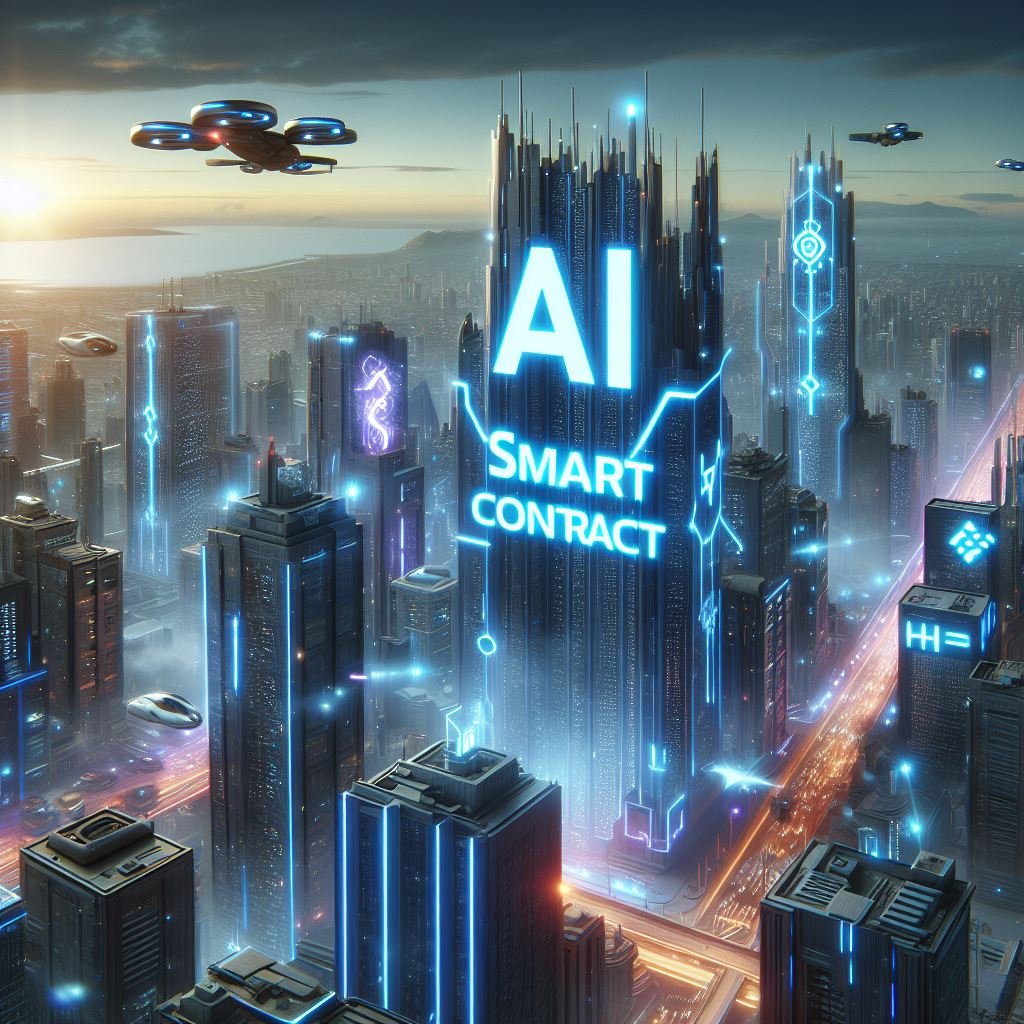Introduction
Smart contract revolutionize digital transactions by automating and self-executing agreements. In the realm of blockchain technology, these contracts ensure trust and transparency.
Smart Contract have become integral to various industries, simplifying complex processes and reducing reliance on intermediaries.
How Smart Contracts Work
Delving into the mechanics of Smart Contracts, they operate on predefined conditions. When these conditions are met, the contract executes automatically, streamlining processes and minimizing the risk of fraud.
By utilizing blockchain technology, Smart Contracts enhance security, ensuring tamper-proof transactions.
Key Features of Smart Contracts
Explore the key attributes that make Smart Contracts a game-changer. From decentralization to transparency, these features contribute to their widespread adoption across diverse sectors.
Businesses leverage these features to create efficient, secure, and autonomous systems.
Smart Contracts in Finance
Witness the transformative impact of Smart Contract in the financial sector. From decentralized finance (DeFi) to secure and swift cross-border transactions, Smart Contract are reshaping the financial landscape.
The automation of contractual agreements expedites processes, reducing costs and enhancing accuracy.
Smart Contracts in Real Estate
Navigate through the applications of Smart Contract in real estate transactions. These contracts facilitate secure and transparent property transactions, automating tasks such as property transfers and title verification.
Real estate industries globally are adopting Smart Contract to streamline operations and enhance customer trust.
Challenges and Risks
Examine the potential challenges and risks associated with Smart Contract, including coding vulnerabilities and legal implications. Awareness of these factors is crucial for mitigating risks and ensuring the robustness of Smart Contract applications.
Industry stakeholders actively address challenges to foster the continued evolution of Smart Contract.
The Future of Smart Contracts
Peer into the future as Smart Contract continue to evolve. From interconnecting with emerging technologies like IoT to expanding their reach in governance systems, the future holds exciting possibilities for Smart Contract.
Innovations in blockchain and increased industry collaboration will drive the next phase of Smart Contract development.
Table of Uses
| Use Case | Description |
|---|---|
| Supply Chain Management | AI-enhanced Smart Contract streamline supply chain processes, ensuring transparency and traceability. |
| Legal Industry | Smart Contract powered by AI automate legal document review, reducing manual labor and errors. |
| Healthcare | AI-driven Smart Contract facilitate secure and efficient sharing of patient data among healthcare providers. |
| Insurance | AI assists in risk assessment for insurance contract, enhancing accuracy and enabling personalized policies. |
| E-commerce | Smart Contract, integrated with AI, automate payment processing and enhance customer trust in online transactions. |
Combining AI and Smart Contract
Explore the synergy between artificial intelligence and Smart Contract. AI adds cognitive capabilities, making Smart Contracts more adaptive and intelligent in decision-making.
The integration enhances the efficiency and responsiveness of Smart Contract in dynamic environments.
Conclusion
In conclusion, Smart Contracts represent a paradigm shift in how agreements are executed and enforced. The convergence of Smart Contracts and AI opens up new possibilities for efficiency, transparency, and security across various sectors. As we navigate the evolving landscape of this technology, it is evident that the synergy between Smart Contract and AI holds immense potential for shaping the future of transactions and contractual agreements.




